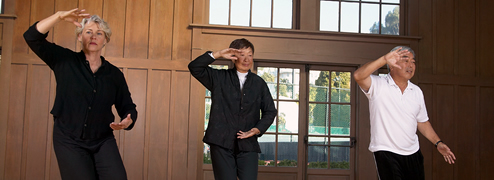
Caregiving is a Lonely Exhausting Act of Love
We know that it takes courage to live and to die. What we don’t know is that it also takes courage to be a primary caregiver.
If you are currently caring for a loved one, you are likely struggling to accept the coming loss and frustrated that you have little influence over what is happening. The only thing you can seem to control is your quality of care – yet your best efforts often don’t seem to be good enough—which concerns you.
Actually you will provide better and more consistent care the sooner you accept your own limits and understand you can’t be a “perfect” caregiver. That said you will be surprised by your emotional and physical fortitude if you accept one critical caveat:
Being a good caregiver doesn’t mean giving up your sanity and health
Each of our lives is precious, and it is important that when you are caring for another you don’t neglect caring for yourself. Sounds good on paper, doesn’t it?
Truth is many primary caregivers often lose touch and don’t know when to take a break from “giving” to “taking” time for themselves. Often the driving force is not wanting to feel guilty later. Unfortunately there are consequences to being heroic: you can end up totally used up and ill—and no longer like your loved one or yourself.
Burn out can lead to depression
To prevent exhaustion from turning into depression, take action to maintain your emotional and physical health.
- Set aside time to walk at the very least; even better, attend an exercise/yoga class.
- Eat well-balanced meals; when you don’t, take a multi-vitamin/mineral supplement.
- Contact your physician if you aren’t sleeping.
- Monitor your evening cocktail hour – too much of a “good” thing isn’t.
- Give yourself permission to overrule a loved-one’s request, if it is unreasonable.
- Admit when you are over your head and ask for help. (See Part One to learn about Transition support.)
- Establish an end of the day/before bed routine to help release the tension of the day.
End of day self-care routine
Before going to bed, track your feelings and write down what is true for you today. Admit to what you would never say out loud to another. When finished, tear your notes into pieces and toss them into the trash.
- What makes you sick at heart?
- What is unfair?
- What scares you?
- How does it feel to be insanely exhausted?
- What do you wish you could say to your loved one?
(Consider saying it the next day using “I” rather than “you” statements.)
Next, close your eyes, take a few deep breaths and begin to breathe from your belly while repeating to yourself “soft belly.” Once your breathing has slowed:
- Release tension by allowing your stress to wash down from the top of your head, down through your brow, into your face, jaw, neck, and shoulders—on down through your torso into your legs and out your toes. Do this slowly.
- Allow the day’s issues to move into the background like a radio in the car: you know the radio is on but you aren’t paying attention.
- Accept thoughts of anger, guilt, and fear that intrude, and remind yourself that these thoughts are not the sum total of who you are.
- Acknowledge that even though you have limitations, you are a good person
- Honor the fact that you are doing the best you can and wash your mind and body with a good dose of loving kindness.
- Continue to sit quietly until you get to a place of no opinion – no credit – no regret.
- Finally, open your eyes and massage each foot, pressing firmly into the ball, arch, heel, and toes.
When the caregiving ends
You may initially be too exhausted to actually grieve immediately after your loved one’s death. But as you gain strength, keep in mind that your goal is not to “get over” your loss—for connection and relationship is what has and will continue to give meaning to your life. Instead allow the coming months of grieving to give you the opportunity to create a continuing bond with your loved one, which you will take with you into your future.
In closing, I would like to quote Rabbi Wolpe who wisely reminds us in Making Loss Matter: “because death is the greatest loss, it harbors the greatest lessons.” May one of your lessons learned be that you matter, and your life isn’t over.
Recommended reading:
 Making Loss Matter: Creating meaning in difficult times.
Making Loss Matter: Creating meaning in difficult times.
Rabbi David Wolpe
 Being with Dying; Cultivating compassion and fearlessness in the presence of death.
Being with Dying; Cultivating compassion and fearlessness in the presence of death.
Joan Halifax.






























